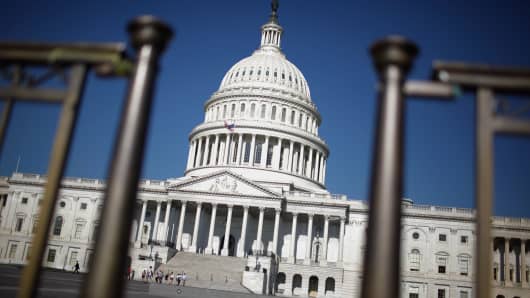A sound plan is needed to reduce the budget deficit over the next 10 years, but wholesale government spending cuts should not be the core of the program, according to a new survey of economists.
The National Association for Business Economics' poll of 196 members found more than 70 percent opposed the full implementation of $85 billion in federal budget cuts known as the "sequester" that were set to start taking hold last Friday.
The International Monetary Fund last week warned that the spending cuts, if fully implemented, could shave at least 0.5 percentage point off gross domestic product this year.
(Read More: GOP Clings to One Thing It Agrees On: Spending Cuts)


